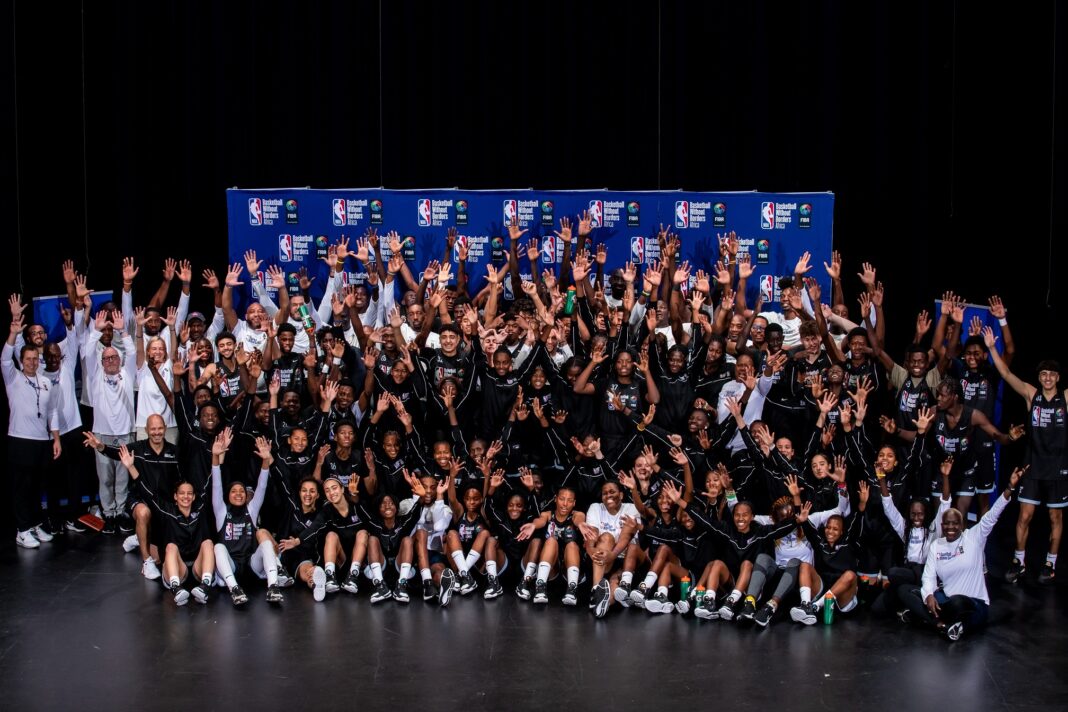Yiaga Africa has described Nigeria’s 2023 general elections as “dashed hopes”, saying that the Independent National Electoral Commission (INEC) did not meet public expectations in its conduct of the elections.
This was contained in Yiaga Africa’s report on the 2023 elections, signed by its Board Chairman and Executive Director, Dr. Hussaini Abdu Samson Itodo, entitled “Dashed Hopes? Yiaga Africa Report on Nigeria’s 2023 General Election“.
Dr. Samson Itodo noted that the 2023 general election is one of the most meticulously planned since 1999 but yet failed in public expectations.
According to him, INEC produced a four-year strategic plan and a detailed Election Project plan ahead of the election.
Additionally, the Electoral Act enacted one year in advance of the election ensured that the funds for the election were released early to the electoral commission and empowered it to deploy election technology, including electronic transmission of results.
“The Act made it possible for INEC to introduce new technologies for the general election such as the Bimodal Voter Accreditation System (BVAS) and INEC Election Results Viewing Portal (IReV).
“The introduction of improved technology for voter registration by INEC, especially online pre-registration to vote, increased voter interest in the election.
“The Commission also established new polling units to decongest overcrowded ones and to locate polling units closer to voters to facilitate easier access,” Yiaga Africa observed.
It further noted that these positive developments raised public optimism and the expectation that the 2023 general election would guarantee free choice, fair contest, and credible outcomes.
The developments saw a resurgence of active citizenship, and the resilience and power of young people were on full display.
Young people leveraged technology and social media to influence political debates, voting attitudes, and transparency of the electoral process.
In total defiance of insecurity, cash and fuel scarcity in the country, citizens turned out en masse to cast their votes and demand accountable political leadership.
To avoid any derailment, INEC produced sensitive materials such as ballot papers and results sheets locally to forestall logistical challenges that may prompt the rescheduling of the polls.
INEC, on its part, demonstrated institutional resilience as the Commission proceeded with electoral preparations despite incessant attacks on its offices in certain parts of the country.
Yiaga Africa emphasised that the nationwide deployment and high functionality rate of the BVAS for voter accreditation in the elections are bright spots that should be strengthened and sustained.
The election also produced the most politically diverse National Assembly ever, another plus.
Amidst all the gains, however, Yiaga Africa made the following observations:
- Citizens’ enthusiasm and interest to vote prior to the election did not reflect the turnout at the polls, as the election produced the lowest voter turnout in recent election history.
- INEC and other electoral governance actors did not meet public expectations for the 2023 elections despite the confidence-building and voter mobilization initiatives that preceded the elections.
- INEC’s extensive preparations and public communications set the bar high for the election. Unfortunately, the Commission did not meet these expectations.
Shifting its searchlight on the Judiciary, Itodo noted that the Judiciary, through some judgements delivered prior to the elections, undermined the preparedness and high expectations of the citizenry.
He said: “The Judiciary delivered judgements that undermined provisions of the 2022 Electoral Act and rolled back reforms seeking to improve the candidate nomination process in political parties.
“The elections represented a missed opportunity, as incremental electoral reforms to enhance electoral integrity failed to deliver desired outcomes.
“Factors including:
- poor logistics on election day, especially during the February 25 election;
- failure of the technology designed to drive transparent result management, namely the result collation system and the INEC Results Viewing (IReV) Portal;
- poor communication provided by INEC at critical points in the process;
- tactical use of violence to influence electoral outcomes;
- voter suppression;
- vote buying;
- non-compliance with electoral law and guidelines; and,
- apparent manipulation of results during collation
“…cast doubts on the credibility of the process, resulting in broken public trust in INEC and the overall outcome of the elections.”
Itodo further observed that processes and procedures influence the integrity of electoral outcomes and regretted that the compromised process produced questionable outcomes.
On its part, Yiaga Africa said that it deployed a comprehensive election engagement strategy for the 2023 General elections, claiming that it deployed a total of 6,377 citizen observers for the 2023 general election.
In the pre-election phase, 822 long-term observers were deployed across the 774 Local Government Areas (LGAs) in Nigeria from November 2022 through February 2023, who observed the pre-election landscape and reported their observations bi-weekly.
Yiaga Africa also observed party primaries, Continuous Voter Registration (CVR), Collection of Permanent Voter Card (PVC), INEC testing of the BVAS machines and Mock accreditation.
On February 25, it deployed the Process and Results Vote for Transparency (PRVT) methodology formerly known as PVT- Parallel Vote Tabulation, to observe the election day process.
It deployed another 3,014 observers to a random representative statistical sample of 1,507 polling units with an additional 822 mobile observers to provide information on the election process in each LGA and observe the result collation process in the LGA and state collation centres.
For the March 18th election, Yiaga Africa said it deployed a total of 1,547 citizen observers across 28 states to observe the governorship election employing similar methodology as in February 25 elections.
With the introduction of the INEC Election Result Viewing Portal (IReV), Yiaga Africa launched the Election Results Analysis Dashboard (ERAD) to monitor the portal with 1,561 data clerks trained to observe and download the results from IReV portal for the Presidential election.
In the final analysis, Yiaga Africa stressed that INEC’s failure was as a result of “weak electoral governance, procedural shortcomings, the zero-sum nature of politics, and electoral impunity”.
It urged Nigeria to adopt legislative, administrative, and policy action to enhance the integrity of elections, restore public trust, and guard against ephemeral enthusiasm in the electoral process.
To achieve this, Yiaga Africa outlined five key pathways for reform and action, including
- Part, one highlights Yiaga Africa’s 2023 election strategy.
- The contextual issues that shape the outlook of the election are analyzed in part two.
- Part three focuses on Yiaga Africa’s assessment of the elections against electoral integrity principles such as transparency, inclusiveness and fairness.
- Part four proposes a framework for legislative, administrative and policy reforms to achieve eight key objectives namely, rebuilding public confidence in the election, strengthening INEC’s institutional independence, improving the commission’s effectiveness, addressing the ambiguities, complexities and inadequacies of the electoral legal framework, enhancing the integrity and accuracy of the voter register, protecting voting rights and inclusiveness of elections, safeguarding the use of electoral technologies and raising the quality of political engagement and candidate selection.
- Compliance with the rules and guidelines
Itodo also cautioned against using electoral technology as silver bullet, adding that to deliver transparent elections, the competence, integrity, and neutrality of vendors, operators and managers of electoral technologies must be guaranteed to protect the integrity of elections.
He demanded additional oversight from political parties, civil society groups, media and citizens on all aspects of the election value chain.
According to him, the election revealed ambiguities, complexities and inadequacies with the election legal framework.
“The implementation of the 2022 Electoral Act for the first in a general election reveals existing gaps that constitute the basis of electoral disputes.
“The ambiguity with the provisions on results collation, margin of lead and electronic transmission of results made the process susceptible to manipulation and misinterpretation.
“Although the Act gives INEC powers to review election results declared under duress, the modalities and procedures for the exercise of this power were not prescribed in the Act or guidelines leaving a vacuum.
“Also, the legal framework places no statutory obligation on INEC to subject its electoral technologies to testing and verification.
“Standard practice requires institutions deploying electoral technologies to test and verify equipment, software and tools within a reasonable time before deployment for elections,” he added, urging citizens to curb the menace of vote trading by resisting all the tactics employed by politicians to compromise their voting choices.




